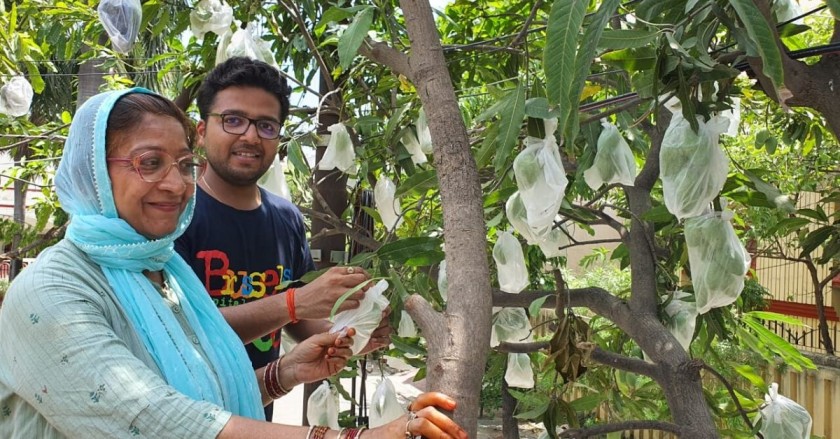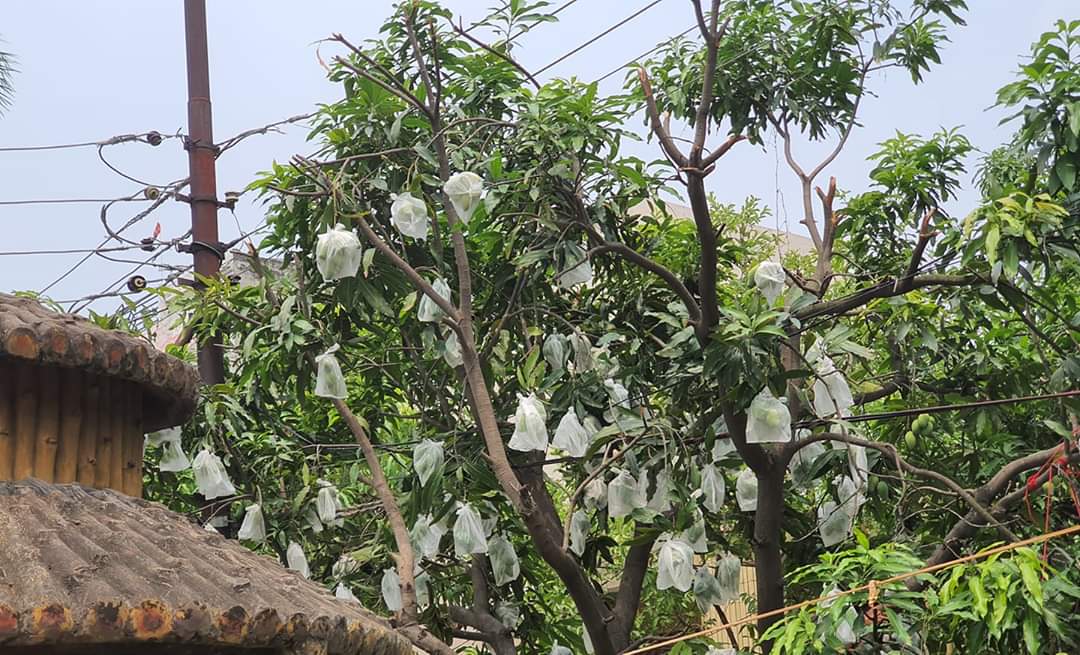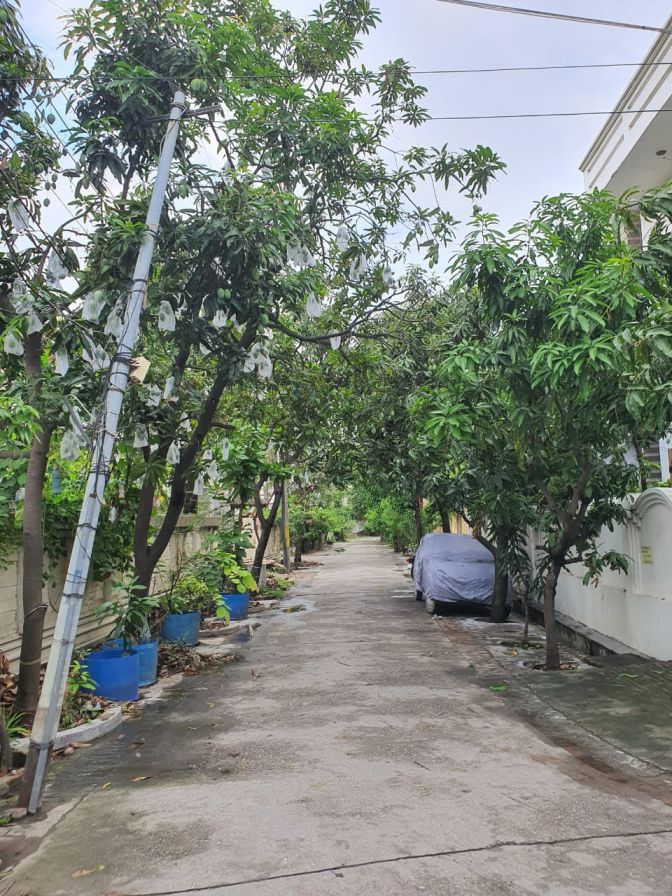Innovative Mask Helps Mother-Son Duo Boost Chemical-Free Mangoes Harvest by 15%
"Every year, once the mangoes in our orchard started ripening, they faced recurrent attacks from pests, squirrels, birds and even monkeys."

If you happen to be in New Chandragupt Nagar in Gorakhpur, Uttar Pradesh, chances are that you have encountered a strange sighting on the mango trees of the area. From a distance, mature mango trees in the colony appear to have hundreds of white bags hanging from their branches or peeping from the foliage. No, this is not a superstitious practice to ward off coronavirus or please the rain gods. Instead, the reason is quite fascinating. These mangoes are covered in small biodegradable pouches, which promote their organic growth without any disturbance from pests or other small animals.
Christened ‘fruit masks’, these little bags not only act as an organic pest repellant but also help protect the fruit from natural agents like heavy wind and rain.
Gorakhpur-based mother and son duo Anita and Utsav Mertia, have come up with this ingenious, organic way of keeping their mango orchards safe. In a conversation with The Better India, Utsav Mertia shared more details about the method.

The Innovative ‘Fruit Masks’ For Mangoes
“Every year, once the mangoes in our orchard started ripening, they faced recurrent attacks from pests, squirrels, birds and even monkeys. Around 10-15 per cent of our mango production was affected by birds and squirrels. We were considering organic ways to keep them at bay when we had the idea of these fruit masks,” shares Utsav.
Along with his mother Anita, an ardent farming enthusiast, Utsav locally procured small biodegradable bags with minuscule pores on them. They tied these bags to each mango in the Tikora (small, unripe) stage.
The task of tying the bags to each mango was cumbersome, and the family took the help of professional workers who are experts in climbing trees. Some of the bags Utsav and his mother tied using a high stool to reach the more accessible branches.
With ample aeration and rainwater percolation, the mangoes ripen inside the bags while being protected from any external attack. The growth of the mangoes is not affected in any way; instead, they face less risk of falling off at an early stage, even from the occasional gust of wind.
“While tying the bags to the mangoes, you have to ensure that there is ample space for the mango to grow fully. Ideally, you should choose bags which are triple the standard size of the mangoes. In case there is an accumulation of water, dirt or dry leaves inside the bag, then the mangoes won’t come in touch with that layer, and there is no risk of rotting,” Utsav explains.

Planting a Legacy
Around two decades ago, Anita Mertia planted over a 100 mango saplings around their colony. Hailing from a family with a farming background, she has always been a staunch advocate of organic farming. When she came to New Chandragupt Nagar after getting married, she noted the ample fallow land in the colony and the stark absence of trees. So, she decided to launch a small plantation drive by herself, starting with mango saplings and later, lychees.
While some of Anita’s mango saplings survived, others didn’t fare so well. Presently, there are around 50 mango trees of the Amrapali and Dussheri varieties which yield a considerable amount of fruit. In their own compound, the mother-son duo has 20 flourishing mango trees and the family gets about 1,000 kg of yield from them every summer. To promote plant growth, they use vermicompost, cow dung manure and organic compost obtained from fallen leaves.
Aside from the fruit masks, Anita and Utsav have also made use of marigold and tulsi plants to invite pollinators and drive harmful pests away. Marigold shrubs have been planted around the mango trees which attract necessary insects like bees and butterflies. Tulsi plants planted beneath the trees are known to have natural fungicidal and insecticidal properties.
The Mertia family owns multiple businesses in Gorakhpur, including a chain of jewellery stores and automobiles. And now, the enterprising mother has turned her passion for nurturing plants into a fruitful — quite literally — business, especially with such innovative methods to avoid using pesticides!
(Edited by Saiqua Sultan)
Like this story? Or have something to share?
Write to us: [email protected]
Connect with us on Facebook and Twitter
If you found our stories insightful, informative, or even just enjoyable, we invite you to consider making a voluntary payment to support the work we do at The Better India. Your contribution helps us continue producing quality content that educates, inspires, and drives positive change.
Choose one of the payment options below for your contribution-
By paying for the stories you value, you directly contribute to sustaining our efforts focused on making a difference in the world. Together, let’s ensure that impactful stories continue to be told and shared, enriching lives and communities alike.
Thank you for your support. Here are some frequently asked questions you might find helpful to know why you are contributing?


This story made me
-
97
-
121
-
89
-
167













